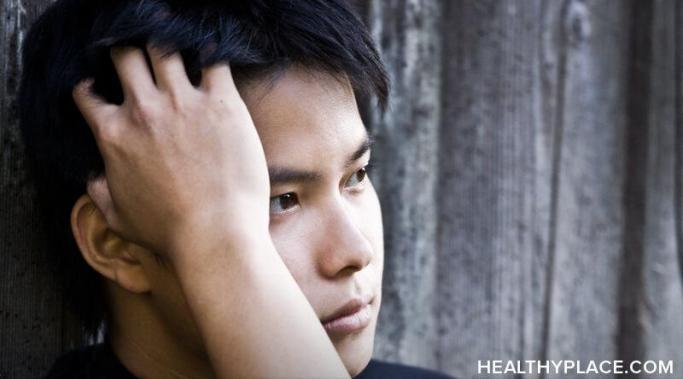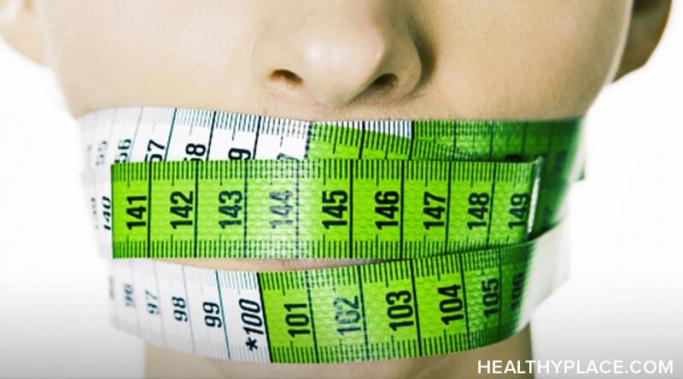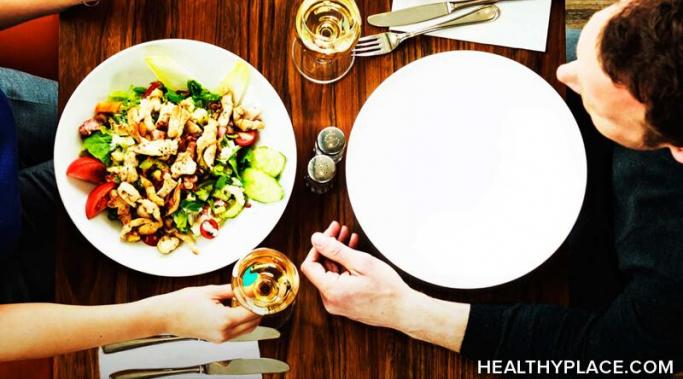When was the last time any of us heard someone talk about a connection between men and eating disorders? My hunch is, not recently. And that's because this segment of the eating disorder population is rarely discussed. A common assumption is that eating disorders only affect women and girls, but this eating disorder stereotype is harmful—sometimes even lethal—to the estimated 10 million boys and men who suffer from this illness in the United States. Due to a lack of awareness about eating disorders as nondiscriminatory between genders, men often feel amplified shame around their struggle which can deter them from seeking out resources, treatment, and a healing community. So as a culture, we need to break this harmful stigma. We need to talk vulnerably and honestly about men and eating disorders.
Surviving ED
In the midst of my recovery process from anorexia and all the associated behaviors that came with it, I have often asked myself this recurring question: is there a connection between puberty and eating disorders? While I cannot speak for every person who has suffered from an eating disorder, on the basis of my own narrative, these two experiences are linked, and there are several reasons for this.
New Year's resolutions for eating disorder recovery can often feel like undue pressure to reach arbitrary benchmarks or perform to certain standards and expectations. But in some cases, New Year's resolutions can actually help with eating disorder recovery—if you are intentional and realistic about them.
The holiday season is one of the most ubiquitous times for traveling, but if you deal with a history of disordered eating, it can be difficult to maintain eating disorder (ED) recovery during holiday travels. Whether you visit long-distance family members or vacation on a ski slope with friends, this departure from a typical structured routine will often cause anxiety-induced triggers to surface. If you plan to be away from the familiar comforts and securities of home this season, here are some coping mechanisms you can practice in order to maintain ED recovery during holiday travels.
It's beneficial to be committed to healthy living and choose to make fitness an integral part of your routine, but if you are susceptible to disordered eating behaviors, that passion for exercise could turn into an addiction. Being physically active is important for stress reduction, balanced emotions, hormone regulation, and optimal body functions. However, fitness can become more harmful than helpful when the need to workout feels driven by compulsion instead of enjoyment and well-being. Here are some indicators that your passion for exercise has turned into an addiction—or an extension of your eating disorder.
The prevalence of food shaming rituals around the holiday season presents an absurd contradiction. This time of year is undeniably food-centric, and there are both positive and negative implications for that. I will first address the positives—a shared meal is enriching, communal, intimate, and nostalgic. The experience is social, the atmosphere is filled with connection, and the memories created at the table become cherished family traditions. But in many cases, eating seasonal foods like mashed potatoes, biscuits, turkey, and stuffing can punctuate the mealtime with guilt, remorse, or insecurity. And that's when food shaming comments or behaviors materialize. This ritual is often distressing for people who face issues with body image and disordered eating, so I want to examine why food shaming intensifies around the holiday season and how to mitigate its adverse effects.
We need to debunk eating disorder myths because, despite their jarring prevalence in modern society, eating disorders are often misunderstood by people who have not experienced them firsthand. Because of this limited consideration and knowledge, common myths about eating disorders have emerged that need to be debunked.
Have you considered practicing mindfulness after a meal? In eating disorder recovery, mindfulness is a coping skill that's generally considered useful during a meal, but practicing mindfulness after a meal can be just as effective. Regardless of what stage you're at in the recovery process, there are still many complex emotions which can tend to surface after consuming a meal, and when they do make an appearance, it's important to equip yourself with a game plan to address those feelings constructively. This is where practicing mindfulness after a meal may help you.
Eating disorders often elicit both competition and comparison among those who suffer, and this can especially be rampant within the context of eating disorder treatment. Because society tends to normalize and glamorize disordered eating behaviors, the inclination to compete over being the "thinnest person in the room" does not suddenly disappear inside a controlled, therapeutic environment. The amount of rules and supervision are heightened in treatment, but the fixation with remaining "skinny enough" is difficult to switch off. This mindset is rooted in insecurity, self-hatred, shame, and negative body image, so feeling the need to compare or compete serves as a distraction from those uncomfortable emotions. But the fact is, competition and comparison in eating disorder treatment will exacerbate suffering and counteract recovery.
Who can get an eating disorder? The answer may surprise you because, for decades, the cultural perception of eating disorders has been whitewashed in the media and characterized as an issue that only affects Caucasian, heterosexual women. But this narrow understanding is biased, warped, and problematic. In reality, around 30 million Americans struggle with disordered eating behaviors, and just a fraction of this number are actually white. These illnesses transcend racial, ethnic, gender, and sexual orientation boundaries, causing a universal epidemic which threatens every demographic. But the prevailing mythos that eating disorders are only present in white culture negates the experience of marginalized people and often alienates them from seeking treatment. So how can society address this whitewashed perception of eating disorders and broaden the narrative to include those from other backgrounds too? Who can get an eating disorder? Anyone.









